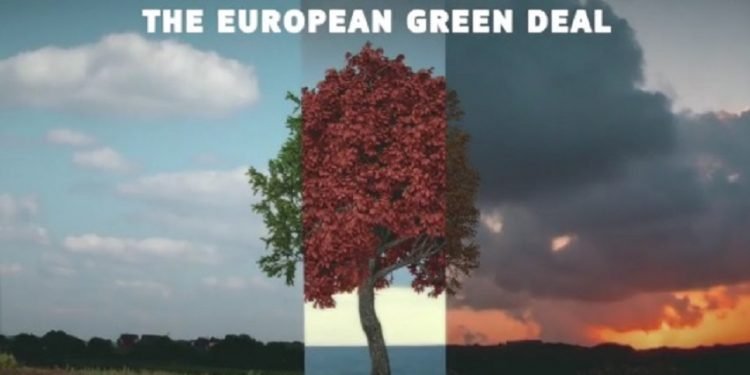North Macedonia (Brussels Morning Newspaper), As the 2024 European election draws near, a significant change is taking place in several key European Union nations. Over the previous four years, the European Union has made addressing climate change a top priority, with a plethora of new legislation and revisions of existing ones under the umbrella of the European Green Deal—supported and championed by the European Commission’s leadership—to reach bloc-wide climate neutrality by 2050. The EU has effectively become the global standard-setter for green policies.
This is arguably one of the biggest policy shifts seen in the developed world in recent years, as full implementation of these ambitions will effectively reshape businesses, investors, and consumers’ choices across every sector. In the months leading to the elections, the EU’s leadership will face the delicate task of balancing a credible commitment to green policies while also providing support to its industry.
The EU is currently under considerable pressure from internal regulation, foreign competition, increasing energy costs, and a rise in right-wing populism across the bloc. With the majority of European citizens becoming more aware of the changes necessary to mitigate the severe consequences of climate change—as shown by a recent Eurobarometer survey—climate policy is expected to be a prominent issue in Brussels and the national capitals during the 2024 campaign and elections.
As Europe’s political landscape shifts in the lead-up to the 2024 European election, climate doubters are claiming the spotlight, posing a significant challenge to the ambitious Green Deal. From the Netherlands, where climate skepticism takes the top spot, to Germany, grappling with a boiler ban backlash, and France, where President Macron calls for a break from EU environmental rules, a wave of discontent is sweeping across the continent.
The recent COP28 meetings reveal a growing concern among Europe’s political parties about the viability of promising bold carbon-cutting targets. The primary obstacle emerges from voters who feel the economic strain of climate change mitigation, expressing a reluctance to embrace policies that might amplify their financial burdens.
Simultaneously, as the Green Deal faces internal scrutiny, a rising tide of right-wing populism and anti-EU sentiment is impacting the 2024 European election. Recent polls indicate substantial gains for hard-right parties in Germany and Italy, while centrist factions suffer losses. European Commission President Ursula von der Leyen’s unwavering commitment to the Green Deal is facing opposition, with concerns that the expanding list of climate regulations is pushing voters toward populist and anti-EU parties.
Rethinking the Climate Strategy
In response to this discontent, there is a call for a comprehensive reevaluation of Europe’s climate strategy. While regulations are essential, there is a growing consensus that a shift towards incentives, innovation, and industrial collaboration is crucial. The success story of renewable energy in Texas, driven by financial incentives and tax breaks, serves as an illustrative example. Europe stands at a crossroads, and the upcoming election is a critical juncture. To sustain momentum for the continent’s climate transition, a thorough reevaluation of its climate strategy is imperative.
As we approach the elections, all signs are pointing to a decreased EU ambition in climate policies, in what may be a strategic shift to focus on strengthened economic resilience and competitiveness of a European industrial base currently challenged by other global players such as China, India, and the United States. Certainly, sustainability will be a hot topic in the discussions around the elections, and party leaders will have to strike a balance between industry interests and effectively protecting the environment and its resources.
The fate of the EU’s green ambitions through the next EU mandate until 2029 is yet to be determined. To remain globally competitive, the institutions will need to find a balance between climate action and industry support. Businesses will play a crucial role in helping lay out this path, advocating for viable and effective green legislation and, at the same time, demonstrating readiness to adapt to climate change’s disruptions.




